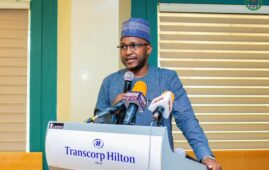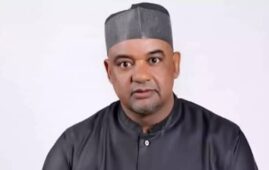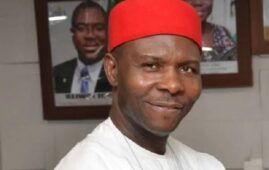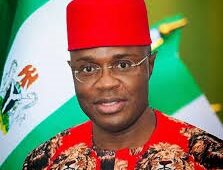By Wang Hailin and Zhang Penghui
The ethnic harmony, economic progress, and respect to culture of ethnic minority groups in northwestern China’s Xinjiang Uygur Autonomous Region have impressed representatives from foreign political parties after they had an on-site visit to learn about the region.
Around 200 representatives of 50 political parties from nearly 30 countries attended a seminar themed with China’s ethnic policy in Urumqi, the capital city of Xinjiang on February 27. Before the meeting, they observed the region’s economic and social development through a series of tours and visits.
Dogu Perincek, Chairman of Patriotic Party of Turkey, said that this is his fourth visit to Xinjiang, and he could see changes every time.
When visiting Urumqi-based firm Rival Tech, the first deputy speaker of the Egyptian parliament Elsayed Mahmoud Elsherif invited the company to set up factory in his country, saying that the raw materials the company needed to produce functional high-polymer thin films were also available in Egypt.
Elsherif wrote down his phone number on a business card and extended it to company’s chief Liu Shengrong, repeatedly asking the latter to contact him for cooperation.
Statistics indicated that the per capita disposable income of Xinjiang’s urban and rural residents respectively grew by 6.5 and 8.5 percent in 2018.
Citing an Arabic proverb that “reality is the clearest mirror”, Marwan Sudah, a Jordanian expert on China, dismissed some foreign media reports that discredited Xinjiang and China’s ethnic policy.
“I saw people from ethnic minority groups wearing their respective traditional costumes and speaking their own languages with smile on their faces,” he said, adding that is quite different from the description by some western media.
Ethnic unity is the lifeline of people of all ethnic groups, the fundamental cornerstone for Xinjiang’s development and progress, and the common will of over 1.3 billion Chinese people.
Aizaz Asif, deputy secretary general of Pakistan Tehreek-e-Insaf (PTI), said that ethnic minority groups have benefited from China’s social progress, instead of being excluded out of the process.
Asif found that local Uygurs usually communicate with each other in Uygur language, while they are also fluent in mandarin. Muslims worshipping inside tidy mosques and Islamic institutes also impressed him.
Respect to ethnic diversity and commitment to protecting ethnic tradition are the key to China’s successful ethnic policy, he added.
After watching an art show staged by a dozen of people from ethnic minority groups together at the International Grand Bazaar, Asif hailed that Chinese people take ethnic unity as important as their lives, and hold together like pomegranate seeds.
The metaphor struck a chord with Aleksei Leskin, Member of the Central Committee and First Secretary of Samara Oblast Regional Committee, Communist Party of the Russian Federation (CPRF).
It reminded Leskin of a story he learnt in middle school. A father tells his sons to break off a broom, but the boys fail. However, it would have been an easy task if they dismantle the stiff fibers.
“Only through unity and solidarity can we become stronger,” he said.
Source: People’s Daily
Representatives from foreign political parties watch pictures at a photo exhibition showcasing Xinjiang’s sceneries in Urumqi, capital city of northwest China’s Xinjiang Uygur Autonomous Region, February 27, 2019. (Photo by Wang Hailin, People’s Daily)










Leave a Comment